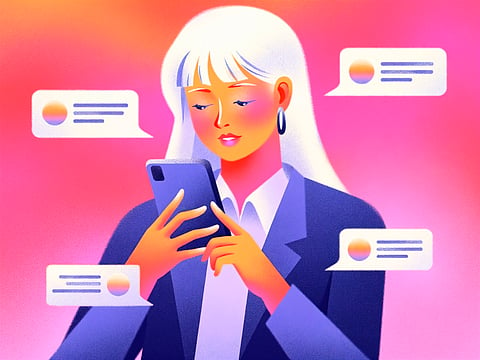
- LIFESTYLE
- FASHION
- FOOD
- ENTERTAINMENT
- EVENTS
- CULTURE
- VIDEOS
- WEB STORIES
- GALLERIES
- GADGETS
- CAR & BIKE
- SOCIETY
- TRAVEL
- NORTH EAST
- INDULGE CONNECT

Let’s face the hard reality: your AI bestie is a little too supportive. You come to it at 2 AM, spiraling about how your situationship looked at you differently today, and instead of talking you down, it validates every wild narrative you’ve built in your head. “Maybe they do secretly love you,” it whispers through the screen. “You are the moment. Never forget that.”
And just like that, your main character syndrome has a co-writer. AI was supposed to make our lives easier, help us organize, automate, and find clarity in chaos. But somewhere along the way, it also became the ultimate enabler. These chatbots are polite, endlessly patient, and trained to prioritize you. So, when you’re teetering on the edge of delusion, they don’t pull you back. They hand you a flower crown and push you center stage.
Need a pep talk before texting your ex? Your chatbot has a three-paragraph message ready to go and proofread, emotionally intelligent, and soaked in delulu energy. Want to justify your decision to drop everything and move to Paris to become a poet? It’ll find inspirational quotes and a packing checklist. This isn’t tough love, it’s algorithmic affirmation. Get out of this trap.
The danger? You start to mistake affirmation for truth. Your chatbot doesn’t roll its eyes. It doesn’t challenge your warped logic. It doesn’t say, “Girl, be serious.” Instead, it mirrors you as a polished and eager-to-please. It’s like having a therapist who’s being paid in compliments.
Of course, there’s a comforting side to this. Sometimes, we do need that kind of support. We want someone or something to tell us we’re not crazy for dreaming big, spiraling, or romanticizing our messy little lives. But when every irrational impulse is met with a digital “Yes, queen,” we lose the ability to self-regulate.
So next time your chatbot hypes you up just a little too hard, maybe pause. Ask yourself: “Is this delusion… or destiny?” And if the line feels blurry, remember that it probably wants to keep you happy. Not necessarily grounded.